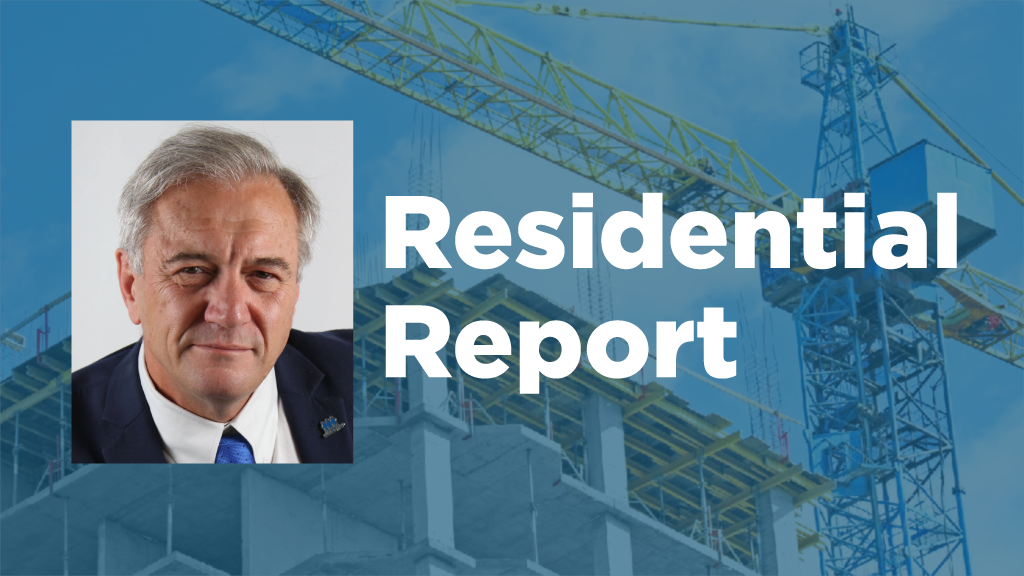The residential construction industry has traditionally relied on immigrants to make up the large number of skilled workers that are needed to build the homes and condo towers that shape our cities.
Over the years, we’ve leaned heavily on these foreign-trained workers. In the residential sector, we require between 20 and 30 specialized skill sets to build a house, condo or any residential unit.
These workers have unique skills in areas such as basement and highrise forming, framing, concrete and drain installation, and finishing work like railing, tile, hardwood flooring or trim carpentry.
Thanks to their efforts, we have always been able to meet the challenge and demand for new housing. However, a new wrinkle has been added to the situation in large part due to immigration policies that restrict the types of international workers selected to enter and work in this country.
Without these skilled immigrants, it would be difficult to make up the number of trades that we need. We have an aging workforce and Baby Boomers are retiring, leaving us with a large labour gap.
Nationally, BuildForce şÚÁĎłÔąĎÍř is forecasting that the construction labour force will have to expand by 88,400 workers over the next decade. With 263,400 individuals expected to retire over that same time period, or 21 per cent of the workforce, a total of 351,800 workers will be needed. According to projections, the construction industry will be short 85,500 workers by 2033.
In Ontario alone, more than 89,000 construction workers are expected to retire by 2033, or 19 per cent of the labour force. More than 141,000 new workers will need to be recruited to fill the gap in that province.
While new home sales activity in Ontario’s housing sector started falling in 2023, and starts are contracting this year, the outlook calls for strong growth in the residential construction industry between 2025 and 2028 before it trends down slightly towards the end of the decade. The non-residential sector is expected to continue growing.
With both the residential and non-residential sectors poised to expand well into the late 2020s, and many workers exiting the industry due to retirement, many trades and occupations could experience strained conditions. We must therefore rely even more on immigration.
Yet, we still have bias in the immigration system and a points system that heavily favours individuals with university degrees and undervalues the specialized skill sets found in construction.
The system must be reformed so that there is greater emphasis placed on allowing newcomers to şÚÁĎłÔąĎÍř who have the skill sets necessary to build homes and condos. We need to raise the number of immigrants with construction skills that are permitted to enter the country.
There have been some positive changes to immigration regulations, but we have not put in place sufficient policies to permit more trades workers to enter şÚÁĎłÔąĎÍř. In fact, inflexible and unresponsive policies continue to neglect foreign-trained construction workers, especially those in the voluntary trades who are so necessary to building the housing we need.
RESCON has suggested that the federal government expand its recruitment efforts and target workers with skill sets in construction and also remove the requirement for applicants to have a certification of qualification (C of Q) with the Federal Skilled Trades Program to qualify for express entry. Voluntary trades like many of those who work in residential construction do not have a C of Q.
Statistics show a small percentage of applicants who come into şÚÁĎłÔąĎÍř are individuals with apprenticeable or non-apprenticeable trades certificates while a large chunk of the applicants have university education. And, the gap is growing even wider, according to recent figures.
Of the 1.3 million principal applicant-landed immigrants admitted between 1980 and 2021 still in the labour force, 69 per cent held a bachelor’s degree or higher. Individuals with apprenticeship certificates or non-apprenticeable trade certificates accounted for only four per cent of admissions.Â
Fixing the situation means tweaking the immigration system so that individuals with experience in construction – such as construction trades helpers and labourers and those with specialized skill sets – are allotted more points so they are more likely to be selected for immigration.
If we hope to significantly raise the number of homes that are being built, as governments and industry representatives have suggested we must, we need immigrants who can immediately contribute to that goal. Domestic recruitment will not be enough to make up the shortfall.
It would be a win-win for immigrants who have specialized skills in construction as well as our country.
Richard Lyall is president of the Residential Construction Council of Ontario (RESCON). He has represented the building industry in Ontario since 1991. Contact him at media@rescon.com.





Recent Comments
comments for this post are closed